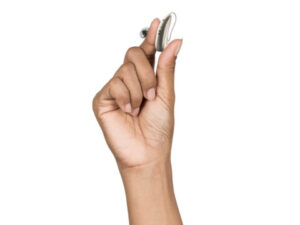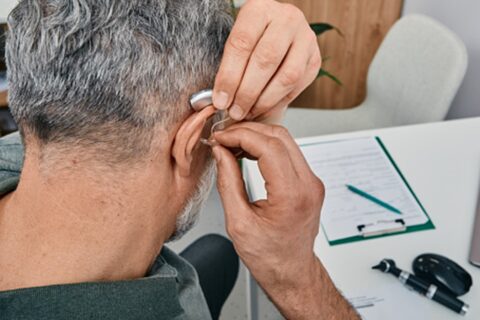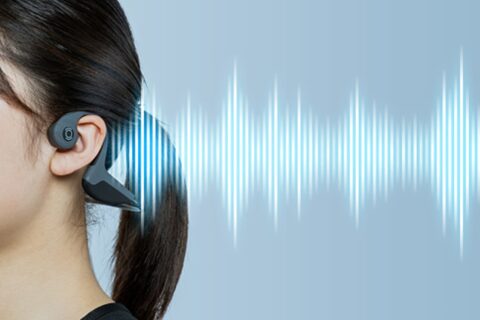UNDERSTANDING HEARING LOSS

By Shanai Hill
As Southwest Florida’s premier hearing center, we see hundreds of patients who are experiencing varying degrees of hearing loss, from sudden hearing loss to progressive hearing loss, in one or both ears. Hearing loss is a common concern. Approximately 15% of American adults aged 18 and over report some trouble hearing, and almost half the people in the United States older than age 65 have some degree of hearing loss.
Let’s explore types of hearing loss, signs of hearing loss, types of hearing loss, hearing loss causes, and hearing loss treatments.
How Hearing Works
There are three parts to the ear: the outer ear, middle ear, and inner ear. Sound waves enter the outer ear and travel through the ear canal to the eardrum. The eardrum and three small bones of the middle ear amplify the vibrations as they travel to the inner ear. There, the vibrations pass through fluid in the inner ear (cochlea). Thousands of tiny hairs attached to the nerve cells of the cochlea help translate sound vibrations into electrical signals that are transmitted to your brain. Your brain turns these signals into sound.
Signs of Hearing Loss
Most patients with hearing loss indicate that their first sign of hearing loss is asking others to repeat themselves or having to turn up the volume on the TV, radio, phones, etc. You may also have some degree of hearing loss if you experience any of the following:
- Muffled hearing
- Full or “stuffy” sensation in the ear
- Dizziness or vertigo
- Ringing in the ear (tinnitus)
- Pain or tenderness in the ear
This short 5-question quiz can help determine if you’re experiencing hearing loss.
Types of Hearing Loss
Hearing loss is the partial or complete inability to hear sounds from one or both ears. There are two main types of hearing loss: conductive hearing loss and sensorineural hearing loss. Conductive hearing loss occurs when sounds can’t travel from the outer ear to the eardrum and the bones of the middle ear. Sensorineural hearing loss occurs when there is damage to tiny hair cells in the cochlear and/or the auditory nerve. Sound vibrations reach the cochlea, but damaged hair cells can’t translate the sound vibrations into the electrical signals that are transmitted to your brain.
Causes of Hearing Loss
Conductive hearing loss can be caused by:
- Ear infections
- Allergies
- Swimmer’s ear
- A buildup of wax in the ear
- A foreign body in the ear
- Bone lesions
- Ear defects
Sensorineural hearing loss can be caused by:
- Aging
- Damage to the ear from loud noise
- Head or ear trauma
- Autoimmune inner ear disease
- Ménière’s disease
- Central nervous disease
- Ear malformation
- Tumor
Treatment for Hearing Loss
Depending on the cause and severity of hearing loss, treatments can include removal of ear wax or foreign objects, treating an infection with antibiotics, surgery, hearing aids, cochlear implants and a combination of speech therapy or assistive listening devices. While hearing aids are extremely effective, among adults aged 70 and older with hearing loss who could benefit from hearing aids, fewer than 30% has ever used them. However, modern hearing aids that are nearly invisible and are becoming increasingly popular.

Hearing Doctors in Southwest Florida
With offices in Naples and Estero, Florida Gulf Coast Hearing Center serves patients with hearing loss in Naples, Estero, Bonita Springs, Fort Myers, Lely, Belle Meade, Vineyard, Vanderbilt Beach Estates, Orangetree, Council, Marco Island, and beyond. Our team of physicians and audiologists will perform a thorough exam and testing to determine your diagnosis and treatment options. Our unique combination of ear, nose, and throat physicians and highly trained hearing specialists make our practice the optimal care provider for your hearing health
Contact us today to discuss hearing loss, signs of hearing loss, types of hearing loss, hearing loss causes, and hearing loss treatments.


